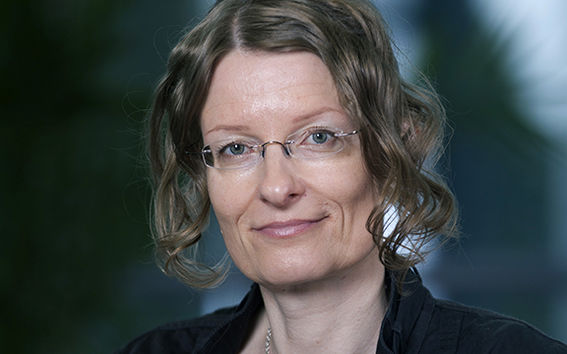Anne Lähteenmäki, Aalto University
"If you give up, you will achieve nothing. No one has to be perfect or super talented. Motivation and commitment to do the job are enough".

What have you studied and how did you choose this option?
I studied astronomy at the University of Turku, and then went on to do my PhD at the Helsinki University of Technology (now Aalto University). I have dreamed of a career in astronomy for as long as I can remember, ever since I was a little child. The starry sky has always attracted me, first as a magical and mesmerising sight on cold winter nights, and then as a super fascinating phenomenon that I always wanted to learn more about. I read all the astronomy books in the library, and then I went on to order books from the Ursa library. I didn't have much choice about what to study, because I knew exactly what I wanted to do. I never asked anyone if this was the right field for me or if I could do this, but I went into it with heart and passion.
How did you become a radio astronomer?
My first job was as a PhD student at the Metsähovi radio observatory. I went on to do my PhD straight after my Master's degree. I still remember being asked if I wanted to continue working on my PhD at Metsähovi. I think I packed my bags right away. I could think of nothing better than astronomy, especially radio astronomy. After my dissertation, I continued my research career as an academy researcher, among other things. I started as a professor of radio astronomy at Aalto University in 2013.
What greetings would you like to send to a young woman considering a career?
Anything is possible, the sky is the limit - although in space science not even that limit exists. The most important thing is to find a field that you enjoy and that motivates you. Then you can do anything. Don't let anyone else tell you what you can or can't do, make your own choices.
Studying engineering gives you an excellent basis for a variety of careers, whether in research or in business. Even if you decide to change fields later, your studies will never be wasted.
What is the best thing about being a radio astronomer?
I get to explore the wonders of the universe. I'm still fascinated by the beauty and excitement of space and I want to keep learning more about it. I get to use amazing observational equipment and get precise measurements of the most distant objects in the universe that can't even be seen with the naked eye. I also get to teach these things and hopefully I can pass on my enthusiasm to my students.
What have been the highlights and most important lessons of your career?
I have been involved in the European Space Agency's big Planck satellite project and have produced a huge amount of unique data on the objects I have studied, the active galaxies. In addition, my latest research project on new types of objects, the narrow-line Seyfert 1 galaxies, took off. I have quickly built up a new network of collaborators and have produced a lot of completely new material challenging old knowledge in this new area of research as well. It is really exciting to be doing something new and different for the first time.
As I've got older, I've realised that it's good for a researcher to be bold and confident from the start. When I was younger, it was difficult to see my own value as a researcher and creator of new knowledge, and I became too sure of my own competence. If I could send a message to my younger self in the past, I would say go for it, dare to do, see and be heard.
What do you expect from the future?
I want to learn more. About everything. I'm the epitome of a researcher in that I enjoy learning anything new, whatever the subject or skill. I also want to share my knowledge and enthusiasm and train new space scientists who also understand the uniqueness of man and the Earth. My goal is to ensure that we have a new generation of smart, well-educated young people who will take it upon themselves to protect the Earth - our only home for now - and ensure that our future on Earth is secure.
For whom is this a suitable career option?
They must have an inner fire and motivation to explore and learn new things. Patience and perseverance are also needed, especially as competition for funding and jobs in the university world intensifies. If you give up, you will achieve nothing. No one has to be perfect or super talented. Motivation and commitment to do the job are enough.